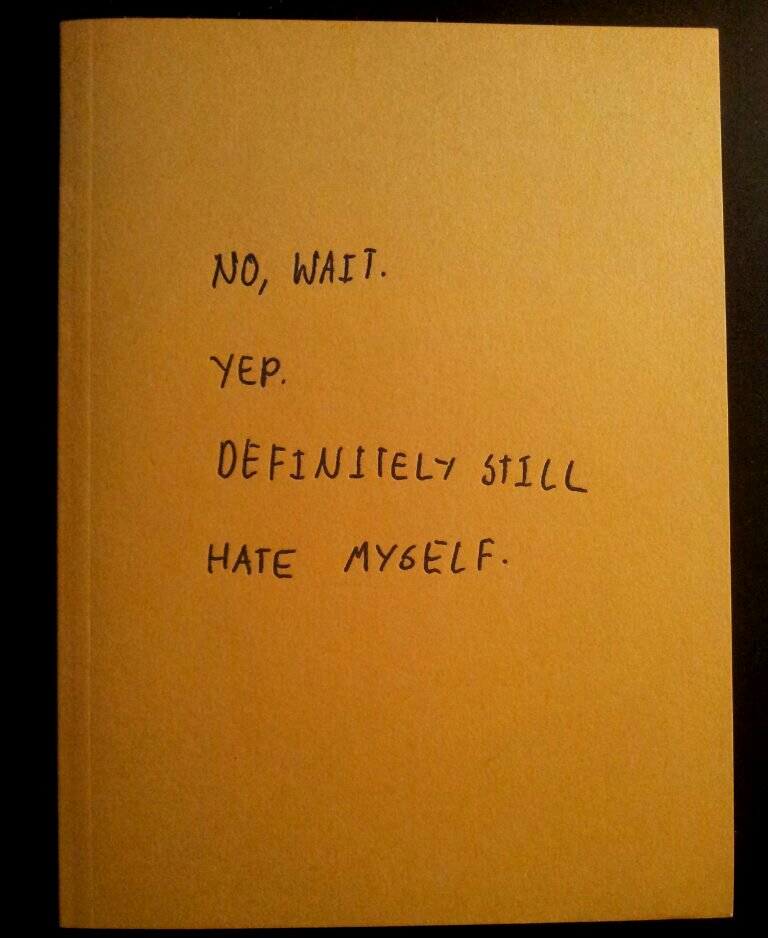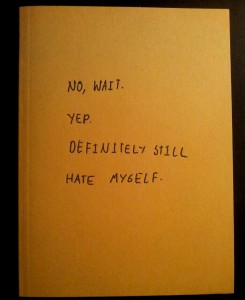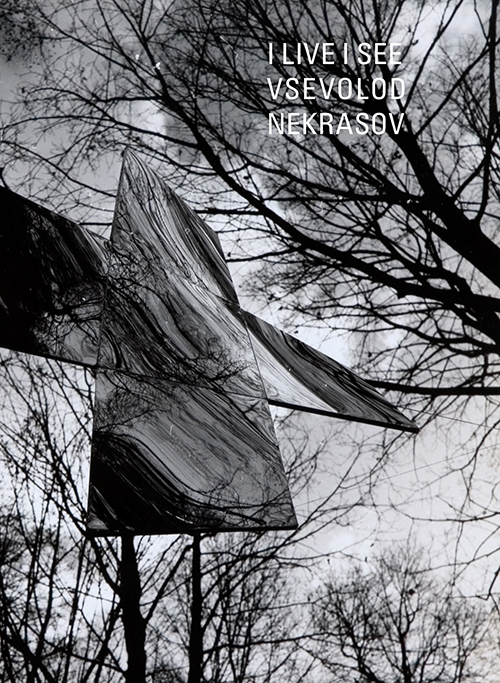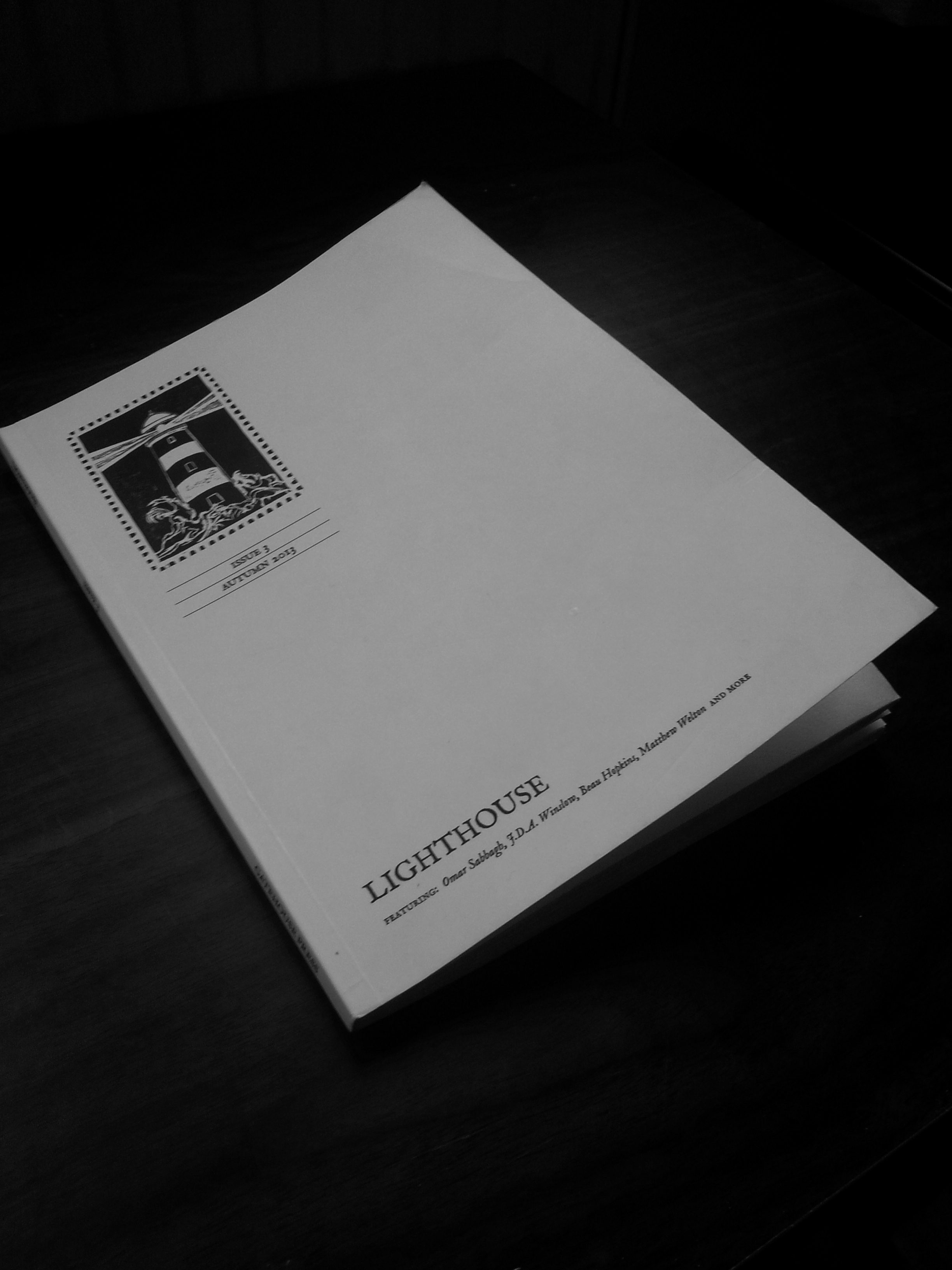No, Wait. Yep. Definitely Still Hate Myself. by Robert Fitterman
-Reviewed by Hayden Westfield-Bell-
I’m pretty sure I shouldn’t have been laughing whilst reading Fitterman’s newest book-length poem, but it reminded me so much of my teenage years that I just couldn’t stop myself from giggling. In reality it’s a hard, relentlessly self-absorbed, dangerously lonely, cruel poem, and I’m sure many of those picking up the book without knowing the context of its creation will quickly put it back down again. No, Wait. Yep. Definitely Still Hate Myself. by Robert Fitterman, published by Ugly Duckling Presse, is actually an amalgamation of ‘hundreds of found articulations of sadness and loneliness from blogs and online posts’, loosely based on the poetic form found in James Schuyler’s The Morning of the Poem. On first reading I had no idea it was a conceptual piece, as the details of the books creation isn’t present on the physical publication. So my first reading was an ‘un-conceptual’ one, and I’d like to share that with you before sharing my ‘conceptual’ review.
Non-Conceptual
No, Wait. Yep. Definitely Still Hate Myself. is a bit of a slog. After five or six pages I wondered when the next theme would come in, or where the poem would turn. Spoiler – it never does. Fitterman relentlessly pursues the thoughts and feelings of a character overcome by loneliness, sadness and depression. Every two or so pages the narrator describes how he/she wants to end their live, how they feel ‘lonely, useless’, ‘miserable […] empty’, and ‘worn down, sad’. There’s no release of this tension, and all optimistic opportunities are quickly brushed aside as irrelevant or off-topic. You could describe it as a 78 page self-absorbed depressive rant, but if that was true I would have put it down after the first page.
No, there’s something more to it. It feels unreal; hyperbolic, too intense to be true. That got me giggling. It reads like a very subtle form of black humour, almost as if the words had been taken from the mouths of those who actually feel this kind of loneliness, but twisted a little for effect. There’s no breathing room in the collection at all, and I’d argue there’s very little poetry too – other than in the author’s ability to very accurately mimic the mindset of a lonely, depressed individual. It reminded me an awful lot of my adolescent years, stuck in a small English town with nothing to do, trying to get comfortable in a body that never felt like my own. Whilst reading, I found myself regularly thinking about social media and the way in which the internet has changed the way in which we interact with one another socially. This is not directly addressed by the text, but as I continued through the publication I began to feel that it wasn’t so much about what was written on the page, but that which isn’t present.
Just to give you an idea of the intensity, here’s an extract;
I have no one and no one wants me.
Seriously, think about that last statement, isn’t that
What every human being lives for? Yes, to love and to be loved
by that one special someone who makes you feel like if the world were
Coming to an end next week, you would just want to
Spend every last moment with them, watching your favourite movies
And getting cozy under a blanket. Well guess what,
I have NO ONE! No one likes me, no one wants me, and no one
Loves me in that romantic way. What a fucking life!
Ultimately it’s not very reader friendly, and though I enjoyed it in a complex, personal, dark fashion, it’s not the most poetical of poems. The narrative is dry and very repetitive, and the pessimistic subject matter makes it an easy book to put down. It’s a candle that burns slowly, and one I’d seldom light. It does provoke interesting thoughts, however, even if the narrative doesn’t address them. I found myself wondering how much of an impact the internet and social media has had on feelings of loneliness and isolation, and how much modern technology affects social skills and social development, but this is not within the text so I’m unsure how much credit I can give the author for this.
Conceptual
After learning about the conceptual nature of the poem, I felt more than a little uneasy about my initial reactions to the text. Finding out that the lines I thought hyperbolic were actually taken cleanly from sites online made me feel a little edgy about the humour I found in them. In a way I could justify it as a personal reaction to the issues being discussed in the text – a kind of giggling at the self, rather than at the voices in the text – but it was still disconcerting.
Which brings me cleanly along to the presence of many voices in the narrative, as opposed to one. Having lifted the lines from multiple sources it’s interesting to see how comfortably they all fit together. Suddenly, the dry prosaic style and repetitive adverbs and adjectives are given meaning; as a kind of collective cry for help, and these slot so easily into the ‘I’. This in turn shows the strong relationship between the ‘I’ and feelings of sadness and loneliness, and how these emotions draw those affected into self-absorption and obsession. There is a language of the lonely, and the society in which this loneliness manifests itself becomes evident too as the text continues. The constant focus on a partner, of someone to love or be loved by, of money and very Western ideas of what makes a person ‘successful’, constantly rear their ugly head.
This is obviously a dangerous deviation away from what would be considered traditional poetry. The poetry here is mainly about the process Fitterman has gone through to create the text we have before us. Whether that text succeeds to be a ‘poem’ is arguably irrelevant; the poetry is the motion of creating the poem – of finding connections, and mixing those pieces together to create an understandable assemblage. So I’d warn those buying No, Wait. Yep. Definitely Still Hate Myself. that you’re purchasing an item, in a sense, an artifact that is only part of the process, that the poetry has taken place before, and continues (I’d argue) in the mental motions of the author through their engagement with the result. It’s not traditional, and is it poetry? I don’t know, but it’s thought provoking stuff.
Lines can be found, and sounds repeat. The echoing adverbs and adjectives become a rhythm for the reader to hold on to. They are mysterious here, and whilst the text reads clearly it is really a kind of monstrous labyrinth for the reader to get lost in. It’s incredibly thought provoking, but won’t appeal to all tastes.







I love it–my favorite review! One can only hope that Poetry will embrace “non-poetry” as Poetry.